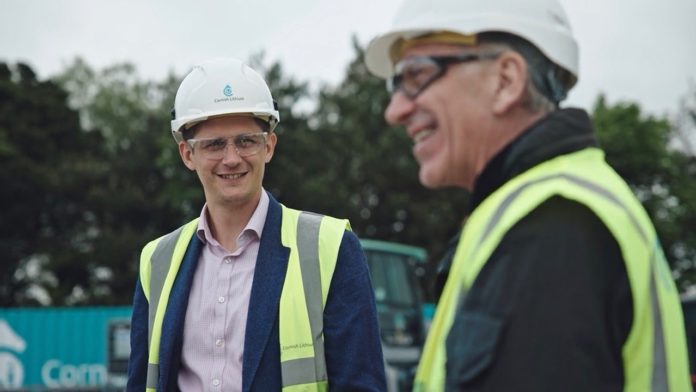Cornwall’s vital role in supplying minerals like lithium and tin to the UK’s economy has been highlighted in the Government’s first-ever Critical Minerals Strategy.
Published by the Department for Business, Energy & Industrial Strategy, it sets out how critical minerals will become increasingly important to bolstering energy security and UK industry.
Cornwall, which has significant deposits of lithium and tin, is singled out for its mineral wealth and the ‘world renowned’ Camborne School of Mines for training generations of mining engineers and geologists around the world.
The Critical Minerals Strategy highlights that lithium, cobalt and graphite are needed to make batteries for electric cars; silicon and tin for electronics; and rare earth elements for electric cars and wind turbines. By 2040, the world is expected to need four times as many critical minerals for clean energy technologies as it does today.
But global supply chains are complex, the strategy says, with China being the dominant player. It adds: “It is vital that we make our supply chains more resilient and more diverse to support British industries of the future, deliver on our energy transition and protect our national security.”
The strategy has been welcomed by the Cornwall and Isles of Scilly Local Enterprise Partnership (LEP), which has invested £2.9 million from the Government’s Getting Building Fund in a £4 million pilot lithium extraction plant near Redruth. The project has been built by Cornish Lithium to demonstrate that lithium can be recovered from geothermal waters.
LEP Board member and renewables lead, Steve Jermy, said: “We’ve got a wonderful mining heritage in Cornwall and some of the resources here, particularly lithium, are world class. If we can invest early and get it running early, it’s going to be an industry of national significance. In terms of jobs and economic development it’s a sector we think has huge potential, and it will give the UK resilience for the future by providing a domestic supply of critical minerals.”
Mike Round, head of geothermal lithium at Cornish Lithium, said the new lithium extraction pilot plant had created ten high skilled jobs. The plant has to date processed geothermal waters from the United Downs Deep Geothermal project, which is planned to be the first geothermal power plant in the UK.
He said: “What we’ve managed to show is that it is possible to extract lithium from deep groundwaters in Cornwall with technology that is low impact. What this is doing is unlocking a potential resource of an incredibly important critical metal here in the UK that we can process. We can do in a green way, potentially in a carbon neutral or even carbon negative way, using green energy and the energy that comes up with these fluids. So, we’re finding a new way to extract metals in a county that hasn’t done so for quite some time.”
The Government’s Critical Minerals Strategy aims to maximise what the UK produces along the critical minerals value chain – through mining, refining, manufacturing, and recycling – in a way that creates jobs and growth and protects communities and the natural environment.
It aims to ‘level up’ post-industrial areas like Cornwall by driving up pay, employment, and productivity, and attract overseas investment into UK critical minerals projects.








